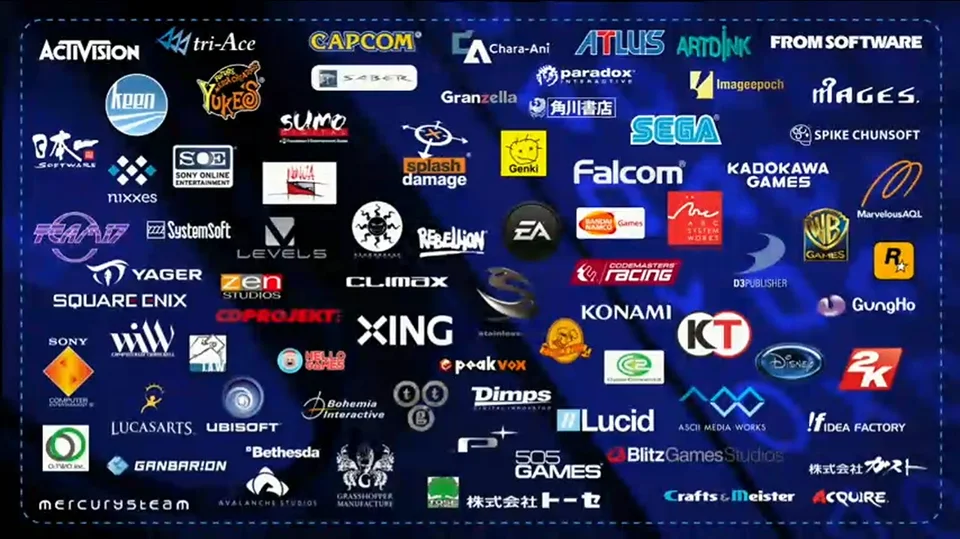Welcome to the dynamic world of game development companies, where creativity, innovation, and technology converge to shape the gaming landscape. In this article, we will explore the realm of game development companies and their pivotal role in crafting immersive gaming experiences. Join us on this captivating journey as we uncover the fascinating world of game companies and their profound impact on the ever-growing gaming landscape.
What is a Game Development Company?


A game development company is an organization dedicated to creating and producing video games. These companies are responsible for game development stages, from conceptualization to design, programming, art, sound, testing, and distribution. They employ talented professionals with diverse skill sets, including game designers, programmers, artists, animators, sound engineers, and quality assurance testers.
Game development companies serve as the driving force behind the creation of innovative and immersive gaming experiences. They combine technical expertise, artistic vision, and storytelling prowess to bring virtual worlds to life. These companies often work closely with publishers, platform holders, and other stakeholders to ensure their games’ successful release and distribution.
Top 10 Game Development Companies


The top 10 game development companies represent some of the industry’s most influential and successful studios. These companies have consistently delivered exceptional games that have captivated audiences worldwide. While the ranking may vary depending on different criteria and preferences, the following companies have established themselves as leaders in game development:
- Nintendo: Renowned for its iconic franchises like Mario, Zelda, and Pokémon, Nintendo has been at the forefront of game development for decades, consistently delivering innovative and beloved titles.
- Electronic Arts (EA): With a diverse portfolio of franchises ranging from FIFA to Battlefield and The Sims, EA is a powerhouse in the gaming industry, known for its high-quality and immersive experiences.
- Activision Blizzard: This company is behind successful franchises like Call of Duty, World of Warcraft, and Overwatch. They have a strong presence in both console and PC gaming.
- Sony Interactive Entertainment: As the publisher behind the PlayStation platform, Sony Interactive Entertainment has produced critically acclaimed titles like God of War, The Last of Us, and Horizon Zero Dawn.
- Ubisoft: Known for its open-world games like Assassin’s Creed, Far Cry, and Watch Dogs, Ubisoft is known for creating vast and immersive game worlds with engaging narratives.
- Rockstar Games: Famous for the Grand Theft Auto series and Red Dead Redemption, Rockstar Games is praised for its attention to detail, compelling storytelling, and immersive open-world experiences.
- CD Projekt: The studio behind The Witcher series and Cyberpunk 2077 is recognized for its commitment to rich storytelling and immersive RPG experiences.
- Epic Games: Besides developing popular games like Fortnite, Epic Games is widely known for its Unreal Engine, a powerful game development tool many studios use worldwide.
- Square Enix: This company is renowned for its Final Fantasy series and other successful franchises like Kingdom Hearts and Tomb Raider. Square Enix is known for its visually stunning and emotionally driven games.
- Valve Corporation: Known for the critically acclaimed Half-Life and Portal series, Valve Corporation is also the creator of the popular digital distribution platform, Steam, which has had a significant impact on the gaming industry.
10 Top Video Game Developers
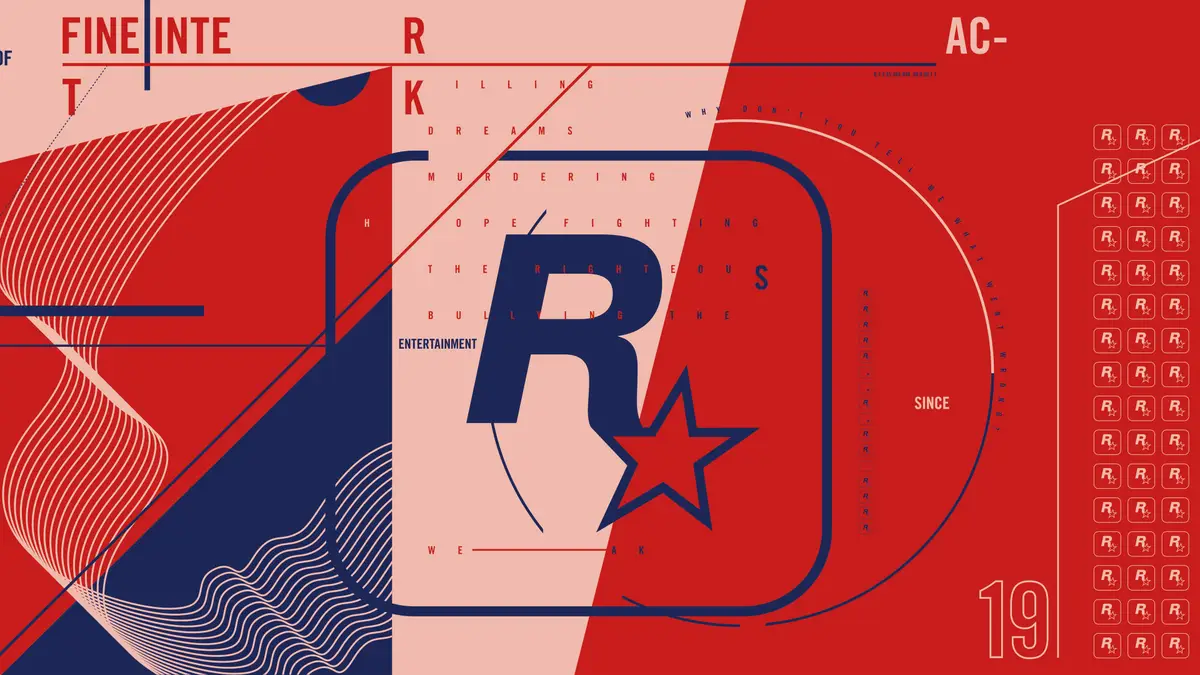

The gaming industry is home to numerous talented and influential developers who have left their mark with their exceptional game creations. While the rankings may vary based on personal preferences and criteria, the following are 10 top video game developers who have made significant contributions to the industry:
- Nintendo: Known for its iconic franchises and innovative hardware, Nintendo has a long history of delivering beloved and groundbreaking games that have shaped the industry.
- Naughty Dog: Renowned for their masterful storytelling and cinematic experiences, Naughty Dog has created critically acclaimed titles like the Uncharted series and The Last of Us.
- Rockstar Games: With their immersive open-world games and compelling narratives, Rockstar Games has captivated players with titles such as the Grand Theft Auto series and Red Dead Redemption.
- Blizzard Entertainment: Known for their highly polished and immersive experiences, Blizzard Entertainment has crafted enduring franchises like World of Warcraft, Diablo, and Overwatch.
- CD Projekt Red: Esteemed for their commitment to rich storytelling and player choice, CD Projekt Red gained global recognition with The Witcher series and Cyberpunk 2077.
- Ubisoft: With a diverse portfolio of open-world games and immersive experiences, Ubisoft has delivered successful franchises like Assassin’s Creed, Far Cry, and Watch Dogs.
- Square Enix: Renowned for their visually stunning and emotionally driven games, Square Enix has created beloved titles including the Final Fantasy series, Kingdom Hearts, and Tomb Raider.
- Valve Corporation: Known for their groundbreaking titles like Half-Life, Portal, and Dota 2, Valve Corporation has made significant contributions to both game development and the PC gaming platform through their digital distribution service, Steam.
- Bethesda Game Studios: Noted for their expansive and immersive worlds, Bethesda Game Studios has developed acclaimed titles like The Elder Scrolls series and the Fallout series.
- Epic Games: Aside from their popular battle royale game Fortnite, Epic Games is recognized for their Unreal Engine, a powerful tool used by many developers to create visually impressive and technically advanced games.
Top 10 Video Game Publisher in 2023
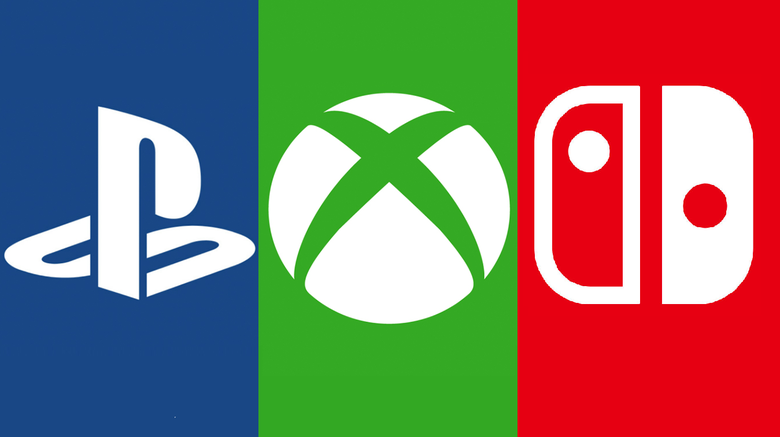

In the dynamic world of video games, not only do developers create immersive experiences, but publishers play a pivotal role in bringing these games to the global audience. As of 2023, here are the top 10 video game publishers who have made a significant impact on the industry:
- Microsoft: With its Xbox platform and a host of first-party studios, Microsoft continues to be a major player in the gaming industry. Titles like Halo and Forza have been instrumental in shaping the console gaming landscape.
- Sony Interactive Entertainment: As the force behind the PlayStation brand, Sony consistently delivers exclusive titles that have become synonymous with gaming excellence. Franchises like God of War and Uncharted have garnered critical acclaim.
- Activision Blizzard: Known for its massive franchises like Call of Duty, World of Warcraft, and Overwatch, Activision Blizzard has a significant presence in both the console and PC gaming markets.
- Electronic Arts (EA): EA boasts an impressive lineup of sports simulation games like FIFA and Madden NFL, as well as popular franchises like Battlefield and The Sims, making it a heavyweight in the industry.
- Nintendo: Renowned for its innovative hardware and beloved franchises like Mario, The Legend of Zelda, and Pokémon, Nintendo consistently captures the hearts of gamers young and old.
- Bandai Namco: With a diverse portfolio spanning from anime adaptations like Dragon Ball to iconic franchises like Tekken and Pac-Man, Bandai Namco has a broad appeal.
- Ubisoft: Ubisoft’s open-world titles like Assassin’s Creed and Far Cry have redefined the genre. Their commitment to creating expansive game worlds has made them a fan favorite.
- Konami Games: Konami is famous for the Metal Gear Solid series and its contributions to the world of gaming, including classics like Contra and Castlevania.
- Capcom: Capcom’s Resident Evil series is legendary in the horror genre, and they continue to deliver with titles like Monster Hunter and Devil May Cry.
- Take-Two Interactive: Known for its subsidiary Rockstar Games and the Grand Theft Auto series, Take-Two Interactive has consistently pushed the boundaries of storytelling and open-world gameplay.
How are Video Game Development Companies Ranked?
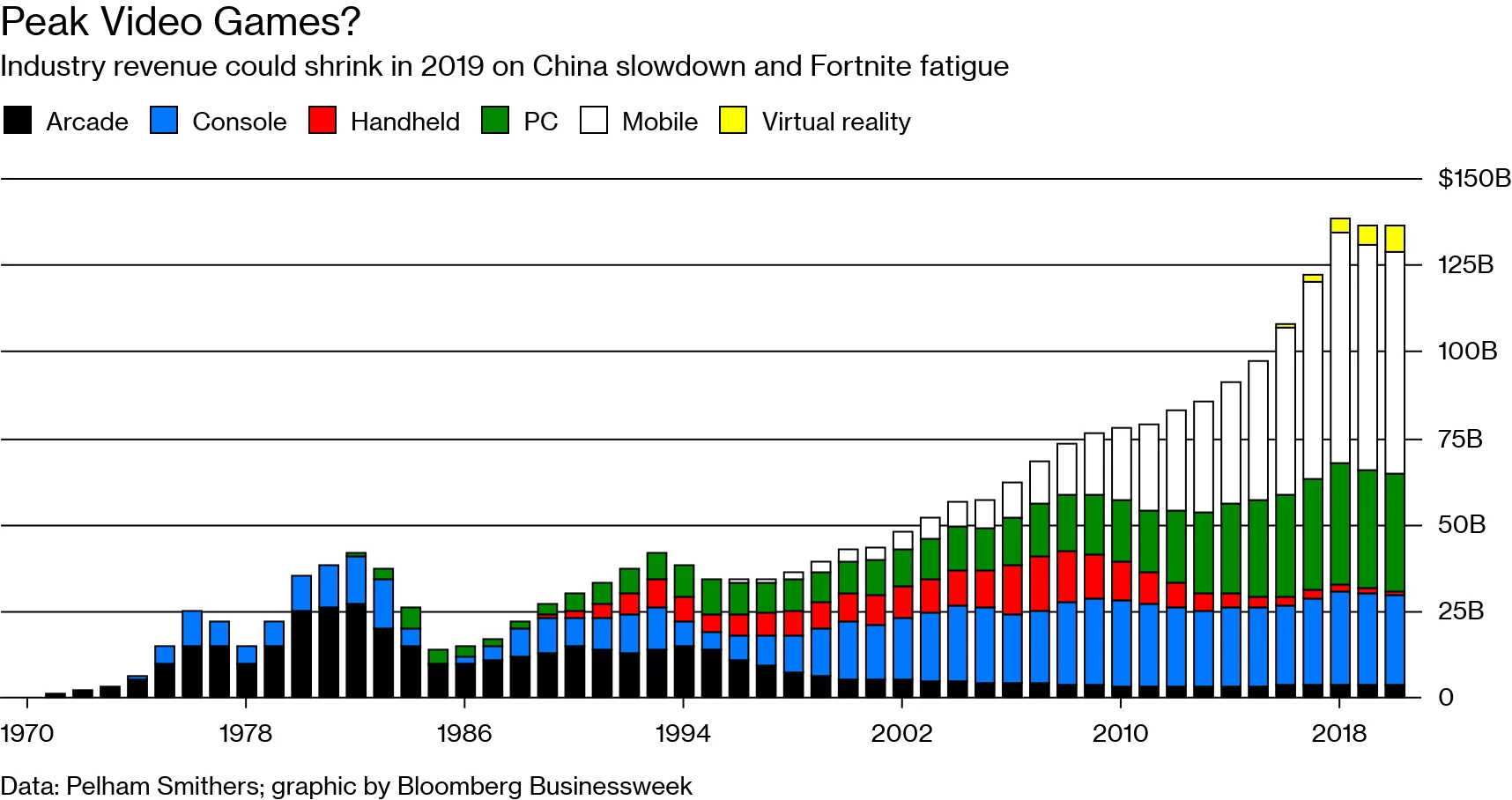

The ranking of video game development companies is often based on various factors that encompass their overall reputation, success, and impact within the gaming industry. While different sources and organizations may have their own methodologies, the following are common criteria considered when ranking game development companies:
- Game Sales and Popularity: The commercial success of a company’s games, including sales figures and player engagement, is often a key factor in determining their ranking.
- Critical Acclaim: A company’s games’ critical reception and review scores significantly assess their quality and influence within the industry.
- Innovation and Creativity: The ability to introduce fresh ideas, unique gameplay mechanics, and innovative technologies contributes to a company’s ranking.
- Longevity and Consistency: A company’s track record of delivering high-quality games consistently over time showcases its ability to maintain relevance and quality.
- Impact and Influence: The influence of a company’s games on the gaming industry as a whole, including their contributions to game design elements, technology, and industry trends, can significantly impact their ranking.
- Awards and Recognitions: The number and prestige of awards won by a company and their games can indicate their excellence and industry recognition.
Top 10 Game Development Categories in 2023
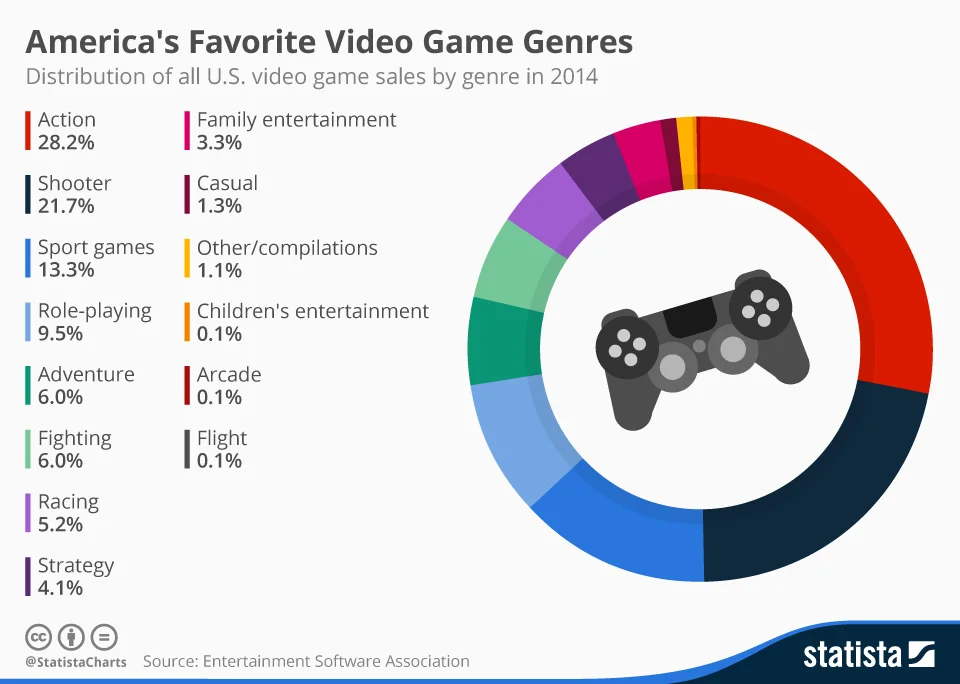

In 2023, the game development industry continues to expand and diversify, encompassing various categories catering to gaming preferences and trends. Here are the top 10 game development categories gaining prominence:
- Action and Adventure: This category includes games that feature intense action, combat, exploration, and immersive narratives.
- Role-Playing Games (RPGs): RPGs offer deep character customization, immersive storytelling, and player choices that shape the game’s outcome.
- First-Person Shooters (FPS): FPS games focus on fast-paced shooting action from the protagonist’s perspective, offering multiplayer experiences and competitive gameplay.
- Strategy and Simulation: Strategy and simulation games challenge players to think strategically, manage resources, and make critical decisions to achieve their goals.
- Open-World: Open-world games provide expansive virtual environments for players to explore freely, offering a combination of storytelling, exploration, and player agency.
- Sports and Racing: This category encompasses sports simulations, racing games, and competitive titles that recreate real-world sports experiences.
- Puzzle and Casual: Puzzle and casual games offer accessible gameplay mechanics, simple controls, and enjoyable challenges suitable for players of all ages and skill levels.
- Multiplayer Online Battle Arena (MOBA): MOBAs focus on team-based competitive gameplay, where players control powerful characters and work together to defeat the opposing team.
- Virtual Reality (VR) and Augmented Reality (AR): VR and AR games leverage immersive technologies to provide realistic and interactive experiences, blurring the boundaries between the virtual and real worlds.
- Indie Games: Indie games, developed by independent studios or individuals, often bring unique art styles, innovative gameplay mechanics, and experimental concepts to the gaming landscape.
These categories reflect the diverse gaming experiences available in the industry, catering to a wide range of player interests and preferences.
Video Game Development Services


Video game development services encompass a range of professional offerings provided by game development companies to assist clients in bringing their game ideas to life. These services are designed to support various stages of the game development process and ensure the successful creation and launch of high-quality games. Some key video game development services include:
- Concept Art and Design: Game companies offer concept art and design services to visualize game ideas, create character designs, develop game worlds, and establish the overall artistic direction of the game.
- Game Programming: This service involves the development of the game’s underlying code and software systems. Game programmers work on game mechanics, physics, AI, user interfaces, and other technical aspects to ensure smooth gameplay and functionality.
- Game Asset Creation: Game companies provide services for creating 2D and 3D assets such as character models, environments, objects, animations, sound effects, and music.
- Level Design: video game Level design services involve creating engaging and immersive game levels, including level layouts, puzzles, challenges, and balancing gameplay elements to provide an enjoyable player experience.
- Quality Assurance and Testing: Game companies conduct comprehensive quality assurance and testing to identify and fix bugs, optimize performance, and ensure the game functions as intended across different platforms and devices.
- Game Marketing and Promotion: Some companies offer marketing and promotional services to help clients effectively market their games, develop marketing strategies, create promotional materials, and optimize game visibility and reach.
How to Work with Game Development Companies?
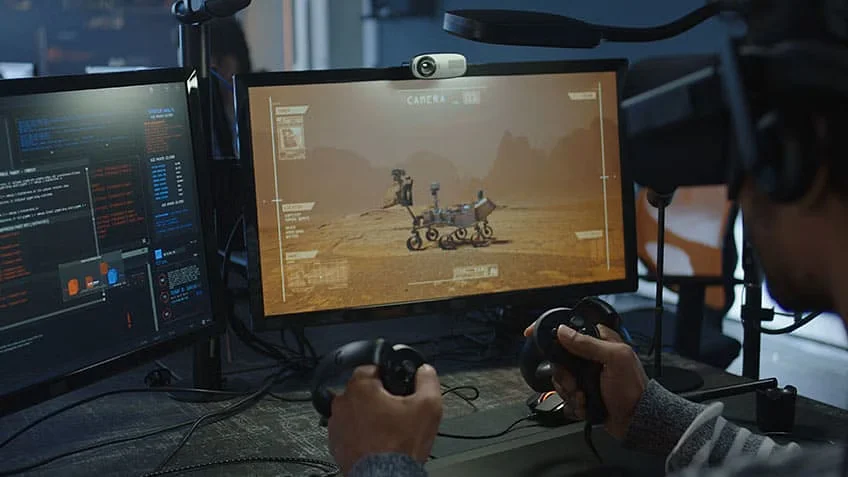

Working with a game development company can be an exciting and rewarding experience, but it requires effective communication, collaboration, and a clear understanding of the development process. Here are some steps to effectively work with game development companies:
- Define Your Game Idea: Clearly articulate your game concept, including its genre, gameplay mechanics, target audience, and desired features. This will serve as the foundation for discussions with the development company.
- Research and Select a Development Company: Conduct thorough research to identify reputable game companies with relevant expertise and a strong portfolio. Evaluate their past projects, client testimonials, and development processes to make an informed decision.
- Outline Project Scope and Requirements: Collaborate with the development company to define the scope of your project, including milestones, timelines, budget, and deliverables. Communicate your expectations to align both parties’ understanding.
- Regular Communication: Establish clear communication channels to stay in touch with the development team. Regular meetings and updates will help track progress, address concerns, and provide feedback throughout the development cycle.
- Collaborate and Provide Feedback: Actively participate in the development process by providing feedback on artwork, game mechanics, and prototypes. Encourage open dialogue to ensure the game aligns with your vision.
- Testing and Quality Assurance: Engage in the testing and quality assurance phase to identify and address any issues or bugs. Provide detailed feedback to refine the game’s performance, user experience, and overall quality.
- Launch and Post-Launch Support: Work with the development company to prepare for the game’s launch, including marketing strategies and distribution plans. Discuss post-launch support, updates, and potential future collaborations.
How do Game Development Companies Ensure Quality and Consistency in Their Work?


Game development companies prioritize quality and consistency to deliver exceptional gaming experiences to their clients and end-users. Here are some ways in which they ensure quality and consistency:
Experienced and Skilled Teams
Game companies hire talented professionals with expertise in various areas, such as game design, programming, art, sound, and quality assurance. Their combined skills and experience contribute to the overall quality of the game.
Robust Development Processes
Companies follow established development processes that include concept development, prototyping, asset creation, programming, testing, and polishing. These processes help maintain consistency and ensure that every aspect of the game is thoroughly addressed.
Testing and Quality Assurance
Game companies conduct rigorous testing and quality assurance procedures to identify and rectify any issues or bugs. They employ various testing methods, including functional, compatibility, performance, and user testing, to ensure a smooth and bug-free gaming experience.
Iterative Development Approach
Many game companies follow an iterative development approach, regularly gathering feedback from clients and users and making necessary adjustments and improvements. This iterative process helps refine the game, enhancing its quality and consistency.
Documentation and Version Control
Game companies maintain detailed project documentation, including design documents, technical specifications, and version control systems. These practices ensure that everyone involved in the project is on the same page and can track changes and updates effectively.
Continuous Learning and Improvement
Game companies stay updated with the latest trends, technologies, and industry standards. They invest in professional development and encourage their teams to enhance their skills and knowledge, contributing to their work’s quality and consistency.
Client Communication and Feedback: Game companies maintain open and transparent communication with their clients throughout the development process. They actively seek client feedback, address concerns, and incorporate client requirements to ensure the final product meets their expectations.
Conclusion
Game development companies play a crucial role in shaping the gaming industry by creating innovative and captivating games. They strive to deliver exceptional experiences by emphasizing quality and consistency in their work. These companies ensure that their games meet the highest standards through experienced teams, robust development processes, rigorous testing, and continuous improvement.
Working with game companies provides numerous advantages, including access to top talent, specialized services, and efficient collaboration. Clients can rely on their expertise and industry knowledge to bring their game concepts to life.
Game companies will adapt to new technologies and trends as the gaming industry evolves to stay at the forefront. Their commitment to quality and consistency will remain paramount as they strive to create immersive and engaging games that captivate players worldwide.
By understanding game companies’ importance and dedication to quality, clients can confidently partner to bring their gaming visions to reality. Together, they contribute to the ever-growing landscape of exciting and memorable games.

